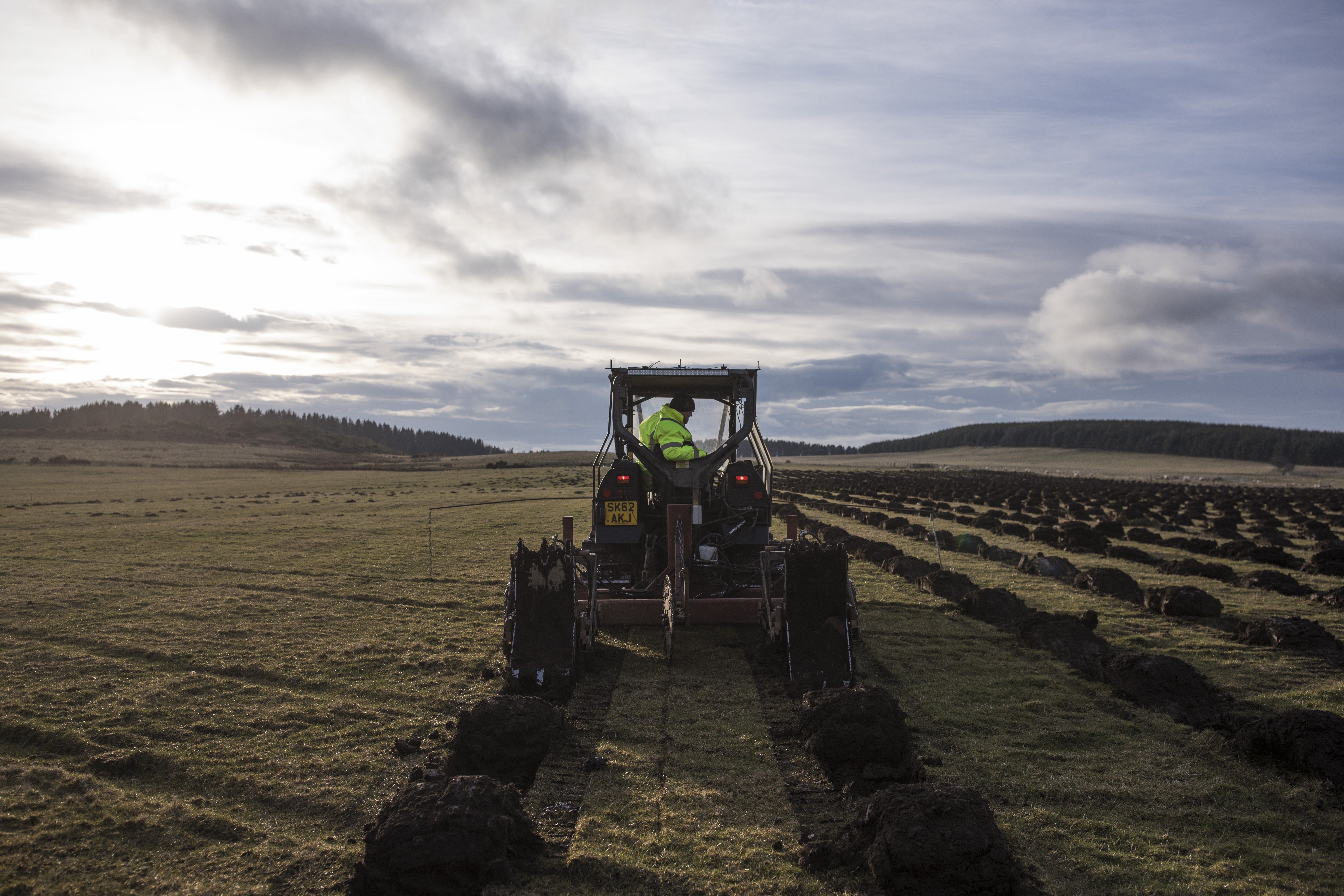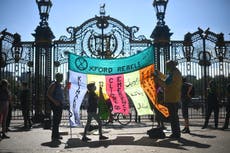Boris Johnson’s climate plan missing nature-based solutions, campaigners say
The protection and restoration of forests and peatlands will be crucial for the UK to meet its climate goals, environmentalists say

Your support helps us to tell the story
From reproductive rights to climate change to Big Tech, The Independent is on the ground when the story is developing. Whether it's investigating the financials of Elon Musk's pro-Trump PAC or producing our latest documentary, 'The A Word', which shines a light on the American women fighting for reproductive rights, we know how important it is to parse out the facts from the messaging.
At such a critical moment in US history, we need reporters on the ground. Your donation allows us to keep sending journalists to speak to both sides of the story.
The Independent is trusted by Americans across the entire political spectrum. And unlike many other quality news outlets, we choose not to lock Americans out of our reporting and analysis with paywalls. We believe quality journalism should be available to everyone, paid for by those who can afford it.
Your support makes all the difference.New commitments to tackle the climate crisis through nature-based solutions are missing from Boris Johnson’s new 10-point plan to reach net zero carbon emissions, campaigners have warned.
Mr Johnson set out his long-awaited climate plan yesterday evening. It included some strong new environmental measures, including an earlier ban on the sale of new petrol and diesel vehicles, a boost for electric cars and more funding to tackle emissions from Britain’s homes.
However, Mr Johnson’s plan only made a vague reference to nature and the role that it could play in helping the country to reach its target of net zero emissions by 2050.
Point number nine in Mr Johnson’s plan was dedicated to “nature” and the “protecting and restoring our natural environment”.
But little information was given on how this might be achieved. The plan made reference to a pledge to plant 30,000 hectares of new forest every year. However, this is a repeat of a promise first made by Mr Johnson in the 2019 general election.
“If we look at an overview of this plan, what it looks like is a big shiny metal lump of technology, with a little clump of trees planted alongside,” Green Party peer and former leader Natalie Bennett told The Independent.
“The government talks a good game on nature-based solutions, particularly in an international context, but what we have here is something that lacks nature, and also people.”
Research has shown that protecting and restoring the UK’s remaining forests and peatlands will key to reducing its greenhouse gas emissions, along with other needed changes such as a transition away from fossil fuels in the power and transport sectors.
This is because both types of ecosystems store large amounts of carbon. Forests hold carbon in their trees, which absorb CO2 from the air during photosynthesis and then use it to build new leaves, roots and shoots.
Peatlands, meanwhile, are able to store high amounts of carbon in their dense waterlogged soils. Across the world, peatlands cover just 3 per cent of the land’s surface, but store one-third of the Earth’s soil carbon.
If these ecosystems were given a boost, they could absorb more CO2 from the atmosphere, helping to reduce the UK’s overall emissions, explains Dr Nem Vaughan, a senior lecturer in climate change at the University of East Anglia.
“Establishing more woodlands and changing how we manage our land are likely to be needed to compensate for difficult to decarbonise sectors like agriculture and aviation,” she told The Independent.
It will be tricky to reduce emissions from aviation because possible future technologies such as electric air travel are still a long way away from being reality, scientists say.
Agriculture, too, poses a particular challenge because the production of some foods, such as meat and dairy, is particularly polluting, and there are currently very few “techno-fixes” in the pipeline. (Scientists have found that the easiest way to reduce emissions from meat and dairy would be to eat less of it.)
“We are one of the worst states for nature in the world,” said Baroness Bennett.
“Trees are not the only solution to that, it has to be the right tree in the right place. But restoring those natural environments is absolutely crucial for carbon storage and for protecting the natural world, and it will actually produce a much nicer local environment for people.”
A report released by the RSPB earlier this week found that the poor condition of the UK’s peatlands results in the release of carbon equivalent to 5 per cent of total UK greenhouse gas emissions every year.
“The UK has got to come up with a plan under the Paris Agreement to say how it’s going to meet its obligations under net zero, and, of course, it can now show off about some of the energy revolutions measures [it has announced],” Martin Harper, director of conservation at the RSPB, told The Independent.
“But it ought to be more explicit about what percentage contribution nature-based solutions will make as part of that plan.”
The UK is due to submit an updated climate plan in the coming months, ahead of its role of host of the UN climate talks, known as COP26, which are to be held in Glasgow next year.
“As well as including emissions reductions targets for energy and transport, they need to be thinking about emissions reductions targets and potentially greenhouse gas removals from land,” Mr Harper added. “And at the moment they don’t think about this in a very sophisticated way.”
Earlier this week, the UK government announced that it would create new national parks as part of its 25-year environment plan. The plan ultimately aims to protect 30 per cent of the UK’s natural spaces.
However, the RSPB said this “barely scratches the surface of what is needed”.
“Designating more land for nature looks good on paper, but this won’t make any real impact if landscapes remain as poorly managed for nature as many are now,” said Beccy Speight, chief executive at the RSPB.
The Independent approached a government spokesperson for comment.

Join our commenting forum
Join thought-provoking conversations, follow other Independent readers and see their replies
Comments